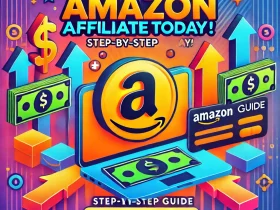Have you ever dreamed of writing an eBook that captivates readers worldwide? Whether you’re a beginner or a seasoned author, finding creative ideas for eBook writing can spark your next big project. This article dives into innovative concepts, practical tips, and the top 20 platforms to bring your eBook to life, ensuring your work stands out in the digital marketplace.
What Is eBook Writing?
eBook writing is the art of crafting digital content designed for screens, blending concise storytelling with reader-friendly navigation. Unlike traditional books, eBooks often include interactive elements like hyperlinks or multimedia, making them adaptable to various devices. Over 60% of readers prefer eBooks for their portability and instant access, according to industry trends. Understanding what is eBook writing sets the foundation for creating engaging, market-ready content.
Start with a clear purpose: Are you educating, entertaining, or inspiring? Tailor your writing to digital readers by using short paragraphs, bold subheadings, and visuals. Tools like ChatGPT can help brainstorm outlines or refine your voice. For example, try this prompt: “Generate 10 eBook ideas for sustainable living.” This approach ensures your eBook resonates with your target audience.
Why eBook Writing Matters
eBook writing opens doors to self-publishing and global reach without the barriers of traditional publishing. It’s a flexible medium for sharing expertise or stories, from niche guides to gripping novels. By mastering creative ideas for eBook writing, you can tap into growing markets like self-help or cli-fi (climate fiction), which are trending in 2025.
Creative Ideas for eBook Writing
Struggling to find inspiration? Below are innovative creative ideas for eBook writing across genres, designed to spark your imagination and meet reader demands. These concepts are rooted in current trends and practical applications, ensuring your eBook stands out.
Non-Fiction & Practical Guides
Non-fiction eBooks thrive on actionable advice and real-world value. Here are three ideas to consider:
- AI-Powered Productivity Hacks: Show readers how to use tools like ChatGPT or Notion AI for task management. Include templates for workflows.
- Personal Finance for Beginners: Break down budgeting and investing with downloadable checklists. Over 70% of millennials seek financial literacy content.
- Sustainability Made Simple: Offer tips for zero-waste living, like DIY upcycling projects, appealing to eco-conscious readers.
Tip: Research trending topics on platforms like X to align your eBook with reader interests. For example, sustainability searches have surged by 25% in 2025.
Fiction & Storytelling
Fiction eBooks allow creative freedom and immersive storytelling. Consider these unique angles:
- Interactive Mystery Novels: Use hyperlinks to let readers choose plot paths, enhancing engagement.
- Climate Fiction (Cli-Fi): Write speculative tales about environmental challenges, a genre gaining traction with 40% more downloads in 2024.
- Micro-Romances: Craft short, emotional love stories for busy readers, perfect for commutes.
Try this: Outline your story using a three-act structure to keep readers hooked. Interactive elements can boost reader retention by 30%.
Niche & Emerging Topics
Niche eBooks target specific audiences with tailored content. Here are three fresh ideas:
- Digital Detox Strategies: Share mindfulness exercises to balance screen time, a growing concern for 65% of Gen Z.
- Remote Work Mastery: Address hybrid work challenges, like virtual team-building, with practical frameworks.
- Mental Health Toolkits: Provide stress-relief exercises, resonating with readers seeking wellness content.
Pro Tip: Use reader feedback from platforms like Goodreads to refine niche topics. Narrower audiences often yield higher engagement.
Interactive & Multimedia Formats
Interactive eBooks leverage technology for immersive experiences. Explore these formats:
- Flipbook Cookbooks: Combine recipes with embedded videos and shoppable ingredient lists.
- Augmented Reality Art Guides: Pair tutorials with AR demos via QR codes, appealing to tech-savvy creatives.
- Gamified Learning Modules: Add quizzes to skill-building eBooks, like coding guides, to boost retention.
Did you know? eBooks with multimedia elements see 50% higher completion rates. Test your ideas with free tools like Canva before committing.
Audience-Specific Concepts
Targeting specific demographics can amplify your eBook’s impact. Consider these ideas:
- Gen Z Career Playbook: Cover side hustles and AI-driven job markets, a hot topic for young professionals.
- Parenting in the Digital Age: Offer tips on screen-time limits and online safety, vital for 80% of modern parents.
- Pet Wellness Guides: Blend vet advice with DIY pet toy tutorials, tapping into the $100B pet industry.
Tip: Survey your audience on X to validate demand. For example, pet care content has grown 20% in search volume since 2023.
Best 20 Platforms for eBook Writing
Once you’ve got your creative ideas for eBook writing, choosing the right platform is key to publishing success. Below are the best 20 platforms for eBook writing, offering free and paid options for authors of all levels.
Top eBook Publishing Platforms
These platforms simplify publishing and distribution, maximizing your reach:
- PublishDrive eBook writing: Free for one eBook; subscriptions start after. Offers 400+ global distributors and 100% royalties. Best for wide distribution.
- Draft2Digital eBook writing: Free with ~10% royalty retention. Features auto-formatting and Amazon/Apple Books reach. Ideal for beginners.
- Lulu eBook writing: Free publishing with variable revenue share. Supports print-on-demand and design tools. Great for hybrid projects.
- Smashwords eBook writing: Free with 15% direct sales commission. Offers EPUB conversion and retailer networks. Perfect for pricing experiments.
- Amazon KDP eBook writing: Free with 35-70% royalties. Largest eBook marketplace with Kindle Unlimited access. Best for maximizing reach.
Interactive & Design-Focused Platforms
These platforms enhance eBooks with visuals and interactivity:
- FlipHTML5 eBook writing: Free tier; paid plans for advanced features. Offers flip-page animations and analytics. Ideal for cookbooks.
- Canva eBook writing: Free; Pro at $12.99/month. Drag-and-drop design with stock media. Best for visually rich eBooks.
- Streetlib Write eBook writing: Free with global retailer publishing. Great for multi-language eBooks.
- 3D Issue eBook writing: Free trial; paid for exports. Converts PDFs to eBooks with analytics. Suited for marketing teams.
- Blurb eBook writing: Revenue share model with Adobe InDesign integration. Perfect for art-focused eBooks.
Freelance & Niche Platforms
These platforms support freelance writing or specialized needs:
- Upwork eBook writing: Offers romance and non-fiction jobs, with rates from $100-$2,000/project. Best for long-term clients.
- Guru eBook writing: Features business guides and tutorials. Rates vary; ideal for portfolio building.
- Jilster eBook writing: Free collaborative eBook creation. Great for team projects.
- Paperturn eBook writing: Custom pricing with password-protected eBooks. Best for secure content.
- Reedsy eBook writing: Free with 10% commission on services. Offers editing/design marketplaces. Ideal for quality production.
Monetization & Emerging Platforms
These platforms focus on alternative revenue models:
- Scribd eBook writing: Subscription-based monetization via reads. Best for subscription models.
- Medium eBook writing: Free with Partner Program pay-per-read. Suited for serialized eBooks.
- Gumroad eBook writing: 10% transaction fee for direct sales. Great for independent creators.
- Leanpub eBook writing: 10% + $0.50 per sale. Supports “write-as-you-go” publishing. Ideal for in-progress works.
- Paul Maplesden eBook writing: Rates like $1,050 for 1,300-1,500-word non-fiction eBooks. Best for B2B writers.
Tip: Start with free platforms like Draft2Digital to test your eBook, then scale to Amazon KDP for broader reach. Compare royalty structures to maximize earnings.
Final Thoughts
Writing a successful eBook starts with creative ideas for eBook writing that resonate with your audience, from interactive mysteries to niche wellness guides. Pair these ideas with the best 20 platforms for eBook writing, like Amazon KDP or Canva, reprisal to publish and monetize effectively. Key takeaways:
- Choose a niche topic with high reader demand, like sustainability or mental health.
- Incorporate interactive elements to boost engagement.
- Test free platforms before investing in paid tools.
- Use reader feedback to refine your content.
Ready to start your eBook journey? Share your favorite creative ideas for eBook writing in the comments!
Further Reading
Best Transcription Services Jobs















Great read! I really enjoyed your perspective on this topic.
0adv30
You have remarked very interesting points! ps nice internet site.